Homeopathy
Homeopathy, an alternative type of medicine that is more than two centuries old, has it that “similia similibus curantur,” serves as a stimulant to healing.
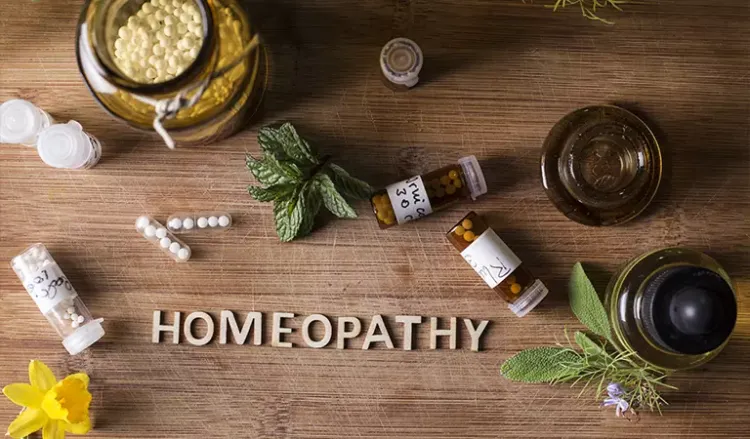
Homeopathy is a system of medicine that is different from orthodox medicine in its ideology and treatment methods as it takes care of the individual. Such methods follow the ‘like cures like’, and minimal doses ever since its inception over 200 years ago. It has thus been understood to be a gentle method of allowing the body to heal itself, instead of using anything that invades the body. The following content shall present the general layout of the homeopathic practice and answer some of the common questions regarding the principles of homeopathy that are often asked.
How is the “Let likes be cured by likes” axiom of Homeopathy translated in practice?
The law “Let likes be cured by likes” also explains that one who is unwell and takes medication for a specific illness then the same medicine, which caused these symptoms in a healthy person interestingly, cures those symptoms in the ill patient by tissue mobilization and inciting the body cure response exhibiting all the adverse effects.
“Like cures like”, is perhaps the most sacrosanct concept of homeopathy There is a particular reason for this ideal, in that any substance that can cause effects in healthy people can be removed through dilution and given to treat those with the same effects.
For example, consuming onions creates a tearing out of the eyes in human beings, accompanied by flowing water from a runny nose, or the usual phenomenon of a cold pleasant period. Such a normal cold allergy remedy within homeopathy would be effective in the treatment of cold or allergic rhinitis of such character.
This amount instigates an improvement in the body’s natural mechanisms such that re-equilibrium is reached. This principle was elaborated for the first time by Samuel Hahnemann who perceived this method as a new approach towards treatment of the entire body.
What is the minimum dose law in homeopathy?
Coping with a disease using minuscule doses of the drug is the essence of the minimum dose law in homeopathic medicine. In homeopathic practice, this law states that smaller amounts, that are highly diluted, of an agent are better and promoting healing than much larger amounts but have lower chances of causing side effects.
Another philosophical notion in homeopathy, the so-called law of minimum dose, says that less is more. Homeopathic remedies are prepared in a series of dilutions: substances are almost always diluted to the point where there are no molecules of the starting substance remaining.
According to homeopaths, in this way, agitation improves the efficacy of the remedy while decreasing the chances of adverse effects.
Hence it tries to elicit the self-healing response of the body with the smallest possible dose enabling the body to initiate its natural healing mechanism without too much pressure on the body’s system. This very principle gives homeopathy the reputation it enjoys for being a gentle and non-invasive form of treatment.
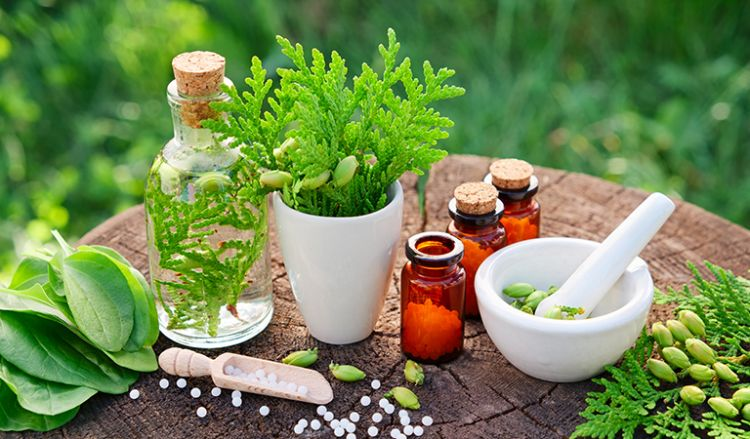
What is potentization in homeopathy?
Potentization covers the process of dilution and violent shaking of drugs to enhance their healing properties by weakening their toxic effects.
Potentization is a special technique of homeopathy that covers serial dilution and succussion-heating with violent shaking of a substance with the view to enhance its healing properties.
This is accomplished by the usual extreme dilution of the original substance with water or alcohol, followed by vigorous shaking. Homeopaths feel this somehow imbues the solution with energy or “vital force” of the substance, thus making it more powerful yet less likely to be toxic.
Potentization enables homeopathic remedies to work gently on the body even when the original substance is toxic in large doses, hence assuring an effective yet safe treatment modality.
How are homeopathic remedies prepared?
The preparation of homeopathic remedies includes a preparatory process known as potentization, which is achieved by means of serial dilutions and vigorous shaking of the remedy. This allows for improvement of the remedy’s potency and reduction in its side effects.
The production of homeopathic remedies, in this case, is potentization, and it has two processes: dilution and succussion. The approach is to first take the original material, which is almost always of vegetable, mineral, and animal origin, and dissolve it in water or ethanol.
Then it is poured into a very special blender that is said to have the action of rather mixing than shaking the liquid but makes it e1e1 heavily in terms of changing the paving. This process is sometimes repeated hundreds and even thousands of times, to the consideration of almost everyone the more the diluted solution is the stronger the medicine becomes.
The end result is a remedy that, while treatment effective, possesses extreme dilution of the energetic information of the pathogen which was the surrounding substance.
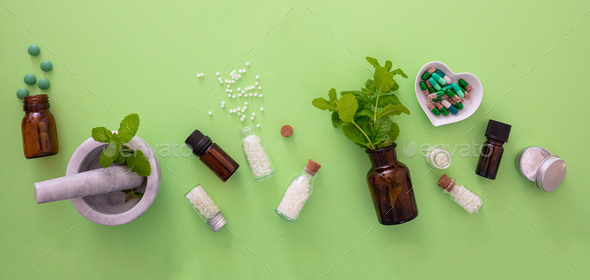
What is the rationale behind individualization in homeopathy?
Individualization in homeopathy considers it essential that treatments are performed according to the peculiarities of physical, emotional, and mental symptoms for personalized healing.
The concept of individualization in homeopathy involves treatment being exactly matched and prescribed according to the exact symptoms and overall health and feelings of each patient.
Where conventional medicine usually applies a uniform approach, homeopathy seeks to understand the constitution of a particular individual. During a consultation, the homeopath will ask detailed questions about the physical symptoms of the patient, his or her emotional condition, and even enquire into lifestyle habits.
The holistic approach allows the practitioner to prescribe the most suitable remedy to make sure that the treatment will not only affect the illness but also address the whole person. This personalized care forms the central effectiveness of homeopathy.
What are homeopathic dilutions, and how do they work?
Homeopathic dilutions are alternate medication forms prepared with the process of a solute dilution to the extent of the infinitesimal level. This is believed to keep the curative potential of the parent drug even when no molecule exists.
Homeopathic dilutions include a series of potencies where one substance is diluted in liquid (typically alcohol or water) and then shaken thoroughly. These dilutions are a kind of modification and classification that is typical for medicines where indications refer to the degree of “potency,” defined by “X” or “C” as potentiation proportion.
Besides retaining physical molecules, it is hard to believe that something would be left once most dilutions are reached where only trace amounts remain. In that way, the remedy provides a basis for action within the physical system at a more subtle level.
Conclusion:
Key concepts and techniques of homeopathy, including the principle of ‘like cures like’, the essence of minimal force margin, and potentization, aid in healing in a very different way. Homeopathic treatment is a more personal approach to treating bodily, emotional, and mental states, which involves seeking individual predispositions and enhancing the higher vitality of the organism. Such starting principles are especially important for all those who want to delve into or use homeopathy as another branch of medicine.
Homeopathy
Homeopathy, an alternative type of medicine that is more than two centuries old, has it that “similia similibus curantur,” serves as a stimulant to healing.
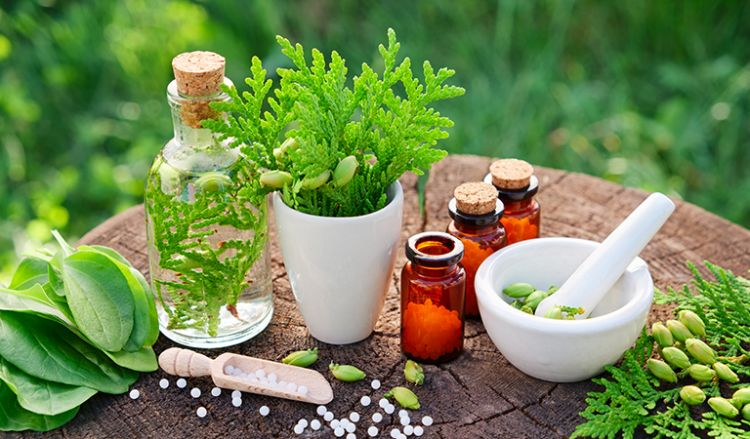
Homeopathy has demonstrated astonishing healing abilities that date as far back as the eighteenth century and is attributed to the German physician, Samuel Hahnemann. It was an answer to the inhuman medical measures that were standard practice during these days. Knowing its history helps us understand how such a delicate non-invasive method has developed and has a bearing on healthcare practices to this day. The present handbook will tackle such important problems as the history of homeopathy and its recent changes and updates.
Who is considered the founder of homeopathy?
Homeopathy was established by a German physician Samuel Hahnemann around the end of the 18th century. Frustration with mainstream medicine pushed Hahnemann to expound on homeopathy, a treatment whose principle “like treats like” has been adopted by numerous medical doctors throughout history.
Samuel Hahnemann, the German scientist, is said to have been born in 1755. History in the late seventeen hundreds considers him one of the founders of the homeopathic movement. This source was rather appalling for a doctor since this was an abuse of a violin and all forms of bloodletting and domestic and foreign bloodletting, which was one of the worst practices with little benefit.
Mary cares about your health. Hahnemann was curious too. Noticing that certain medicines would induce relative syndrome to that which it was supposed to eradicate, he managed to formulate a basic tenet: ‘like cures like’. This principle later matured into the homeopathy concept which has by this time emerged to be one of the most treasured forms of alternative medicine.
When was the first time homeopathy was practiced?
People began practicing homeopathy in homeopathy from that time on; Samuel Hahnemann’s research on the doctrine, “likes are treated by like,” as well as the healing powers of small doses was the exception and effective method.
Homeopathy as a system started in the year 1796 when Samuel Hahnemann put forth his basic principles which are active regardless of applying only highly diluted substances to the patient.
This was done in a paper named “Essay on a New Principle for Ascertaining the Curative Power of Drugs”. This was a whole new direction from the usual medicine and became the basis for homeopathy.
In the latter part of the 19th century, homeopathy became popular in Europe and later all over the world as an individual-centered and complete system.

What influenced Samuel Hahnemann to devise homeopathy?
Hahnemann’s inspiration was brought about by the very observation that cinchona bark produces malaria-like symptoms in healthy individuals; thus, he decided to treat malaria. From here, a wide door opens toward the doctrine: “That which can cause symptoms in a healthy person can cure them in a sick one.”
The formulation of homeopathy by Samuel Hahnemann was inspired by a simple yet profound observation. He noticed that the cinchona bark used to treat malaria, when taken by healthy individuals, produced similar symptoms of the disease.
It was this serendipity that led him to experiment with the “like cures like” principle-that is, substances producing symptoms in the healthy could be used as treatment for those symptoms when they appeared in the sick.
Unsatisfied with the aggressive medical treatments of his time, the search for gentler healing methods by Hahnemann finally resulted in the creation of homeopathy, emphasizing minimal doses and natural remedies.
Explain the expression of ’like cures like’ in homeopathy.
The understanding of the remedy’s action, according to which the remedy prepared from the same substance that brought on the pathological picture in a healthy person is able to cure a patient with the anatomically similar picture explained as “like cures like.”
Homeopathy is based on the doctrine of like cures unlike, which is the general idea that substances that produce certain symptoms in a healthy person can be used to treat that person who is sick.
As in the case of a plant that leads to nausea, such a plant in action may be diluted in such a way that it helps end the nausea it causes. Such assumptions are thought to prompt the body to help restore the lost equilibrium, out of its own efforts.

When and how did homeopathy gain international popularity?
Homeopathy originated in Germany during the late 18th century and by the early 19th century it began to be practiced and supported by nations such as the UK, the US or India. At the time homeopathy also became the trend.
Homeopathy was practicing and expanding in the 19th century too in countries like the UK, the USA and India. A few of the European homeopaths also moved out of their countries to practice the eastern modes of therapies along them were also set up homeopathic centers, schools and even hospitals.
Homeopathy is believed to have been popular in some places particularly New York and Philadelphia by the middle of 1800s.” Homeopathy is thought to have gained some traction much later on before the ‘call’ of prevailing orthodox medicine sunk in.
When it got to India, homeopathy did not become a medical practice system but rather became part and parcel of the existing health system which is still the case today. Such conditions as the popularity of homeopathy being considered very liberal compared to existing approaches at those times leant toward her development.
How bad is the situation of homeopathy’s popularization in 19th-century homeopathy?
Homeopathy became quite popular in the 19th century as it employed milder therapies which are non-invasive unlike the prevalent system of the day which encouraged or practiced bloodletting and purging. People wanted homeopathy as it was more personalized.
The increased acceptance of homeopathy and its practitioners in the 19th century was primarily due to the fact that, for those days, it was far removed from and the opposite of the extreme medical practices of bloodletting and purging harsh drugs.
In what way has homeopathy evolved over time?
It has grown from a small alternative to an internationally accepted mode of alternative medicine. It modernized itself with the demands of changing times but never lost its essential character of treating individuals and minimum dosage.
Since its inception during the late 18th century, homeopathy has grown from a very small, niche kind of practice to a globally established alternate system of medicine. However, over time, it evolved to meet new health challenges but kept its essence with the main principles of “like cures like” and the use of minimal dosage.
Over time, homeopathy combined with other alternative therapies and started spreading to the majority of countries, such as India, where homeopathy was recognized as one of the main alternatives in health. Current research into homeopathy for many conditions continues, yet it remains a very popular choice for those seeking individuality in their holistic treatment.
Conclusion:
One of the aims of studying the background of homeopathy, a relatively young branch of medicine, is the fact that it has been able to become universal despite being an alternative practice. This explains how Samuel Hahnemann, as the founder of homeopathy, was able to incorporate the “like cures like” and “less is more” principles, which still remain even today in alternative medicine. One such journey that I think helps explain the everlasting fascination many have with homeopathy medicine seeking different forms of treatment is the history of its development from the 18th century to the present time. Its history helps us see why its practice continues in complementary therapies.
Homeopathy
Homeopathy, an alternative type of medicine that is more than two centuries old, has it that “similia similibus curantur,” serves as a stimulant to healing.
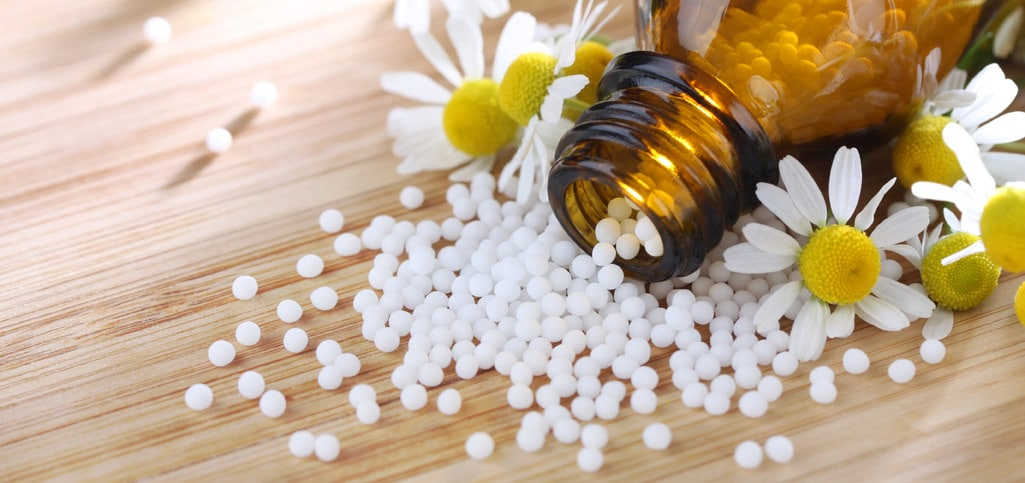
Homeopathy, as a form of alternative treatment, has gained ground recently as many people opt for natural remedies to fight various diseases. The efficacy of homeopathic therapy is still a matter of scientific debate but often those that go down this road wonder if their diet can affect their medical treatments. In this article, we will discuss foods that should be avoided when taking homeopathic medicine and why.
What Are The Common Foods and Substances to Avoid?
Common foods and substances to avoid in homeopathy include caffeine, alcohol, strong flavors (like mint), and certain essential oils, as they may interfere with remedy effectiveness.
Coffee must be avoided while using any type of homeopathic remedy. The coffee contains caffeine which stimulates the body to radically counteract the subtle effects of these medications. For at least half an hour before and after a person takes their dose, homeopaths usually suggest avoiding its intake.
Mint, including peppermint and spearmint, is another substance that homeopaths often tell patients to avoid while undergoing homeopathic treatment. This refers not only to mint-flavored food or drinks but also toothpaste, mouthwash and chewing gum.
Strong flavored foods such as garlic and onions are sometimes recommended against or are told to take in moderation. These smelly vegetables contain strong constituents that could antagonize some homeopathic remedies.
When taking homeopathic medication, alcohol is generally avoided in most cases. This includes alcoholic beverages tinctures and extracts made from alcohol. Alcohol can possibly cancel out the benefits of homeopathic medicines.
Like garlic and onions, strong spices and herbs should be taken in small amounts only. This includes chili peppers, cinnamon, cloves, etc. The hot flavors of these spices and their active ingredients might interfere with homeopathy medicines.
The use of tobacco, through either smoking or chewing, is highly discouraged during a homeopathic treatment.
What Is Antidoting in Homeopathy?
Like garlic and onions, strong spices and herbs should be taken in small amounts only. This includes chili peppers, cinnamon, cloves, etc. The hot flavors of these spices and their active ingredients might interfere with homeopathy medicines. On the other hand, mild herbs do not interfere with homeopathy meds.
Antidoting in Homeopathy: A Conceptual Explanation
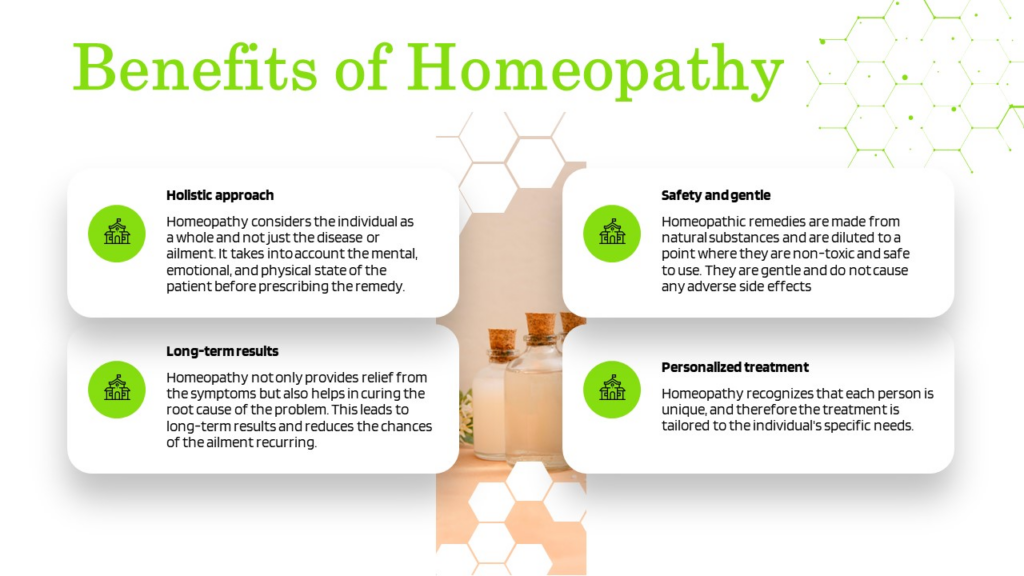
Antidoting in homeopathy refers to the process of neutralizing or counteracting the effects of a homeopathic remedy by using substances that may counteract its action.
Sometimes, people refer to some substances as antidotes where they have interfered with homeopathic remedies in certain ways. It proposes that strong flavors, odors, or chemicals could nullify or counteract the impacts of homeopathic medicines.
While there is limited scientific evidence supporting this hypothesis, many practicing homeopaths and patients claim to have witnessed such occurrences.
One should note here that different persons may show varied degrees of sensitivity towards potential antidotes depending on the type of remedy administered. Some may find it necessary to maintain strict dietary and lifestyle factors, while others only have to exclude selected compounds just before and after taking course medication.
What Are Some Other Regulations of Homeopathy?
Homeopathic remedies are best taken 30 minutes before or one hour after meals to avoid interference. Individualized treatment is crucial, so consult a homeopathic expert for personalized advice.
Besides refraining from particular items of food, many practitioners advise administering these medications far from meals. In general terms, you should take your dose 30 minutes prior to meal consumption or one hour after eating something.
This practice allows for its absorption devoid of other influences such as undigested particles of food.
Remember that individualization of treatment is the key principle behind the practice of homeopathy. Indeed, what may be crucial as a healing agent to an individual may not be so significant for another one.
Consequently, consult with an expert homeopathic doctor who will give you a personal answer based on your specific situation.
How Homeopathy Is Related To Healthy Eating?
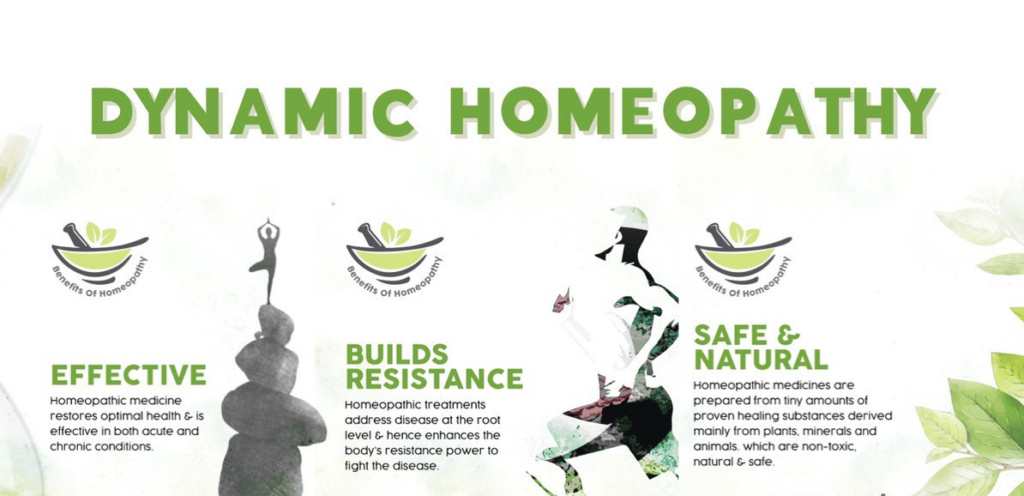
Homeopathy and healthy eating are related as balanced nutrition supports overall health, which complements homeopathic treatments. Avoiding certain foods may enhance remedy effectiveness and absorption.
As much as there are suggestions of what to avoid eating while under homeopathic medication, it is equally important to have a well-balanced, healthy diet during this period. In addition, nutrients from fruits, vegetables, whole grains, and lean proteins can also support general well-being and aid in optimizing the body’s response to homeopathic medicines.
Furthermore, some homeopaths might recommend some dietary changes depending on the kind of illness that you have and on their treatment principles.
Who should not use homeopathy?
Individuals with serious or life-threatening conditions, those seeking evidence-based treatments, or those who are pregnant or breastfeeding should consult a healthcare professional before using homeopathy.
People who suffer from severe infections, cancer, or heart disease, among other life-threatening conditions, should never rely on Homeopathy in place of mainstream medical care.
In case one is expecting or breastfeeding or using other drugs, they should talk to their doctors before they start using homeopathy.
Does homeopathy have side effects?
Homeopathy generally has minimal side effects due to highly diluted remedies. However, some people may experience mild reactions or exacerbation of symptoms temporarily.
Since the solutions used have minimal concentrations, most people believe that homeopathic medicine has no negative impacts due to the low level of risks involved. Nonetheless, healing crises (temporary aggravation of symptoms) could sometimes happen during the process of treatment, which does not last long.
Ensure you use medications only from trusted sources and seek immediate medical attention in case of adverse reactions.
What are the risks of homeopathy?
Risks of homeopathy include potential delays in receiving effective conventional treatment, reliance on unproven remedies, and possible interactions with other treatments or medications.
The main threats of homeopathy include the possibility of delaying appropriate treatment for severe illnesses, the risk of allergic reactions, and the likelihood of drug interference.
Over-reliance on homeopathy in serious health problems can worsen them and result in negative health outcomes. Therefore, it is important to consult a professional medical practitioner for critical conditions.
What can homeopathy treat?
Homeopathy can treat various conditions, including allergies, colds, headaches, digestive issues, and chronic ailments, though its effectiveness is debated and varies by individual.
Homeopathy is a common remedy for simple ailments like colds, flu, allergies, headaches or stomach upsets. Additionally, it deals with persistent issues such as arthritis, asthma or anxiety disorders.
Some clients observe positive effects while scientific proof providing that it really works is limited. It would be better to use homeopathy alongside conventional medicine rather than independently.
Conclusion
One must ensure balance while following dietary suggestions so as to make homeopathic treatments more effective. Do not forget that every treatment regimen must focus primarily on overall health and well-being. Consult a qualified homeopathist for personal advice.
Homeopathy
Homeopathy, an alternative type of medicine that is more than two centuries old, has it that “similia similibus curantur,” serves as a stimulant to healing.

According to the principle of Homeopathy, like cures like is a system of alternative medicine where substances that cause symptoms in a healthy person are used to treat similar symptoms in a sick person. This has made some people argue whether homeopathy can be classified as natural medicine.
What defines homeopathy as a natural medicine?
Homeopathy is often considered a natural medicine due to its use of highly diluted substances derived from natural sources like plants and minerals. The remedies aim to stimulate the body’s own healing processes. However, its natural classification is debated, as the extreme dilution may remove original properties.
In doing this, the dilution and succussion processes are meant to increase their healing properties while at the same time keeping the side effects at a minimum. The critics argue that since at the end it often contains no measurable amount of the original substance, the question is thrown out on its natural status. How the debate goes is on whether nature in those ingredients still works or the process changes too much the nature of the remedy.

How are homeopathic remedies prepared?
Homeopathic remedies are prepared through a process called potentization, which involves serial dilution and succussion (vigorous shaking) of natural substances. This process aims to enhance the remedy’s therapeutic effects while minimizing potential side effects. Despite being based on natural substances, the preparation method is unique to homeopathy.
The idea of the process is that this “essential energy” or “vital energy” of the substance will be passed on to the remedy, thus making it potent enough to effectively treat symptoms. However, the dilution is extreme, so the final remedy may contain no detectable amount of the original substance, which distinguishes homeopathy from other forms of natural medicine that make use of more concentrated extracts.
Are homeopathic remedies made from natural ingredients?
Yes, homeopathic remedies are made from natural ingredients, including plants, minerals, and animal products. However, the ingredients undergo extreme dilution, which means that the final remedy may contain no measurable amount of the original substance. This method is intended to harness the healing properties of the natural ingredients.
That violent dilution, however, often leaves behind a remedy that holds no measurable amount of the original material. Here, what is sought is the energy of the natural source, rather than its physical components, and this forms a prominent characteristic of homeopathic remedial application, setting it apart from more direct uses of natural substances in medicine.
How does homeopathy differ from herbal medicine?
Homeopathy differs from herbal medicine in its preparation and philosophy. Herbal medicine uses plant parts in their natural form or extracts, while homeopathy uses highly diluted substances. Homeopathy’s focus is on stimulating the body’s vital force, whereas herbal medicine targets specific symptoms using plant compounds.
In contrast, homeopathy uses serial dilution and succussion in the preparation of remedies in search of transferring healing properties from the original substance to a highly diluted form. Thus, the philosophy of homeopathy is directed toward stimulating the body’s vital force or self-healing ability, whereas herbal medicine usually targets symptoms with more concentrated compounds of plants.
Can homeopathy be considered eco-friendly?
Homeopathy may be considered eco-friendly due to its reliance on highly diluted natural substances and minimal use of resources. However, the environmental impact of sourcing raw materials and manufacturing processes should be evaluated. The high dilution process means less material is used, potentially reducing environmental impact.
In itself, the process of potentization is not too heavy on resources, so it probably has a low environmental impact. It doesn’t take into account, though, the impacts associated with sourcing the raw materials or with manufacturing processes. Guaranteeing the ingredients come from sustainable sources and then measuring the whole production process would give a closer-to-the-truth assessment of the environment impact that homeopathy has.

What are the criticisms of homeopathy as a natural medicine?
Critics argue that homeopathy is not truly natural medicine because the extreme dilution process often results in remedies with no measurable amount of the original substance. They also point to a lack of empirical evidence supporting its efficacy, questioning its classification as a natural treatment.
Further fostering skepticism is the fact that there is little strong empirical evidence that homeopathy is an effective treatment. The principles and practices of homeopathy fail to jibe with conventional understandings of natural medicine, which are generally based on more concrete components and proven effectiveness.
Is homeopathy recognized by mainstream medicine as natural?
Mainstream medicine often questions homeopathy’s classification as natural due to its preparation process. While homeopathy uses natural substances, the extreme dilution means remedies may not contain active ingredients. Mainstream medical views generally require more robust evidence of efficacy and natural content for recognition.
This method differs from conventional natural medicine practices, where they use more concentrated forms of natural ingredients. With an emphasis on empirical evidence of efficacy and the presence of active ingredients, mainstream medical views may not accord much recognition to homeopathy. This sets homeopathy’s recognition as a natural treatment within mainstream medicine to remain quite contentious and in need of much more real proof of effectiveness and adherence to natural principles.
Conclusion
In short, whether homeopathy qualifies to be considered a “natural” medicine is dependent on several factors, such as the use of natural substances, the holistic approach it employs, and controversial evidence about its effectiveness. On the one hand, many aspects like low poisoning risks or overall body health that correspond with the demarcation between conventional medicine and antipodal approaches align with this definition of healthcare practices; conversely, though, highly diluted substances that form the foundation for these claims cannot be recognized by many doctors from other fields.
Reference
Homeopathy
Homeopathy, an alternative type of medicine that is more than two centuries old, has it that “similia similibus curantur,” serves as a stimulant to healing.
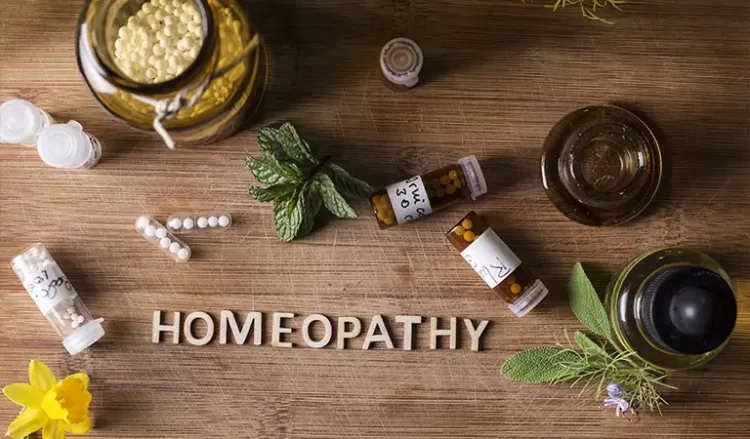
Do you ever reflect on if homeopathy and holistic medicine are the same thing? There are so many alternative healing methods that it’s easy to get confused. We will discuss in this article about what sets these two practices apart from one another while also noting their similarities, so that people can make up their minds when making decisions related to healthcare options available for them.
How does homeopathy differ from holistic medicine?
Homeopathy is a specific type of holistic medicine that uses diluted substances to stimulate the body’s healing processes. While holistic medicine considers the whole person, including mind, body, and spirit, homeopathy focuses on matching symptoms with individualized remedies to restore balance and health.
Holistic medicine involves nutrition, exercise, and improvements in lifestyle to achieve a totally well state in a human being. Homeopathy is one of the holistic practices that concentrates on symptoms and gives treatment with medications based upon the “like cures like” concept. Both deal with the root cause of the disease, although their modes of treatment differ.
What principles guide holistic health practices?
Holistic health practices focus on treating the entire person, emphasizing the balance between mind, body, and spirit. Principles include natural healing, patient-centered care, prevention, and wellness. Practitioners use diverse therapies, such as nutrition and acupuncture, to address physical, emotional, and spiritual aspects of health.
The holistic approach lays emphasis on understanding the special needs of patients and informing the patients regarding the same so that they become an active participant in health matters. Practitioners look for the root cause of the illness rather than treating its symptoms. The integrative approach is supportive of changes in lifestyle and allows different forms of therapies to be beneficial in improving health and preventing illness in the future.

Can holistic practices be integrated with conventional medicine?
Yes, holistic practices can complement conventional medicine by addressing emotional and spiritual needs alongside physical symptoms.
Integrative medicine is the term given to conventional treatment combined with holistic approaches like acupuncture and yoga. These shall help in improving general well-being and thereby provide better results from the treatment. This is an all-inclusive approach to healthcare.
This will help the patients benefit from evidence-based medical treatments along with the holistic practices of targeting stress, lifestyle factors, and emotional well-being in supporting their healing.
This multi-disciplinary health professional collaboration ensures that a tailored made treatment plan is devised to meet the very diverse health needs of a patient to enhance the quality of life and satisfaction with care.
What are the common treatments used in homeopathy?
Common homeopathic treatments include remedies like Arnica for bruising, Ignatia for grief, and Nux Vomica for digestive issues. These treatments are highly diluted and individualized, selected based on symptoms and emotional states, and aim to stimulate the body’s natural healing processes and restore balance.
Homeopathy is a system of medicine that makes use of substances derived from plants, minerals, and animals. Such substances are highly diluted to remove any possibility of toxicity but retain their therapeutic action. The remedies are matched to each patient’s symptoms and personality traits. The physical and emotional symptoms are assessed to develop an individual treatment program that will stimulate each patient’s healing response and allow them to obtain optimal health.
How do holistic treatments enhance mental well-being?
Holistic treatments enhance mental well-being by addressing emotional, physical, and spiritual health. Techniques such as mindfulness, yoga, and nutrition promote stress reduction and emotional balance. These practices foster resilience, improve mood, and encourage self-awareness, leading to improved mental health and overall life satisfaction.
Holistic treatments incorporate multiple modalities that offer a complete path to mental health by putting together mind-body connections. It empowers people with effective positive changes in lifestyle and coping skills. It provides treatments not only for the symptoms but also to create a better quality of life and improvement in personal growth for long-term mental wellness.

What role does diet play in holistic health?
Diet plays a crucial role in holistic health, emphasizing nutrient-dense foods that support physical and mental well-being. A balanced diet promotes energy, mood stability, and disease prevention.
Holistic nutrition would therefore involve wholesome foods, mindful eating, and personalized plans to reach certain needs for health and well-being. Holistic practitioners assist in meal planning by first examining a person’s eating habits and nutritional deficiencies.
Basically focused on the consumption of foods that are organically grown, unprocessed, and maximallyhydration-rich, holistic diets aim to restore balance and energy into one’s life. This method considers food as medicine in that it works in accordance with the self-healing abilities of the body and maximizes other holistic practices.
Are there risks associated with homeopathy?
Homeopathy is generally considered safe, with minimal side effects due to its highly diluted remedies. However, relying solely on homeopathy for serious conditions can delay effective treatment. It’s essential to consult healthcare professionals to ensure comprehensive care and appropriate use of homeopathy alongside conventional medicine.
Patients should warn the treatment providers against their use to avoid potential interactions and therefore have a balanced approach to health. Homeopathy can be used with other therapies; however, it cannot replace any evidence-based medical therapies for serious diseases or emergencies.
Finding the Right Way for Our Well-being
While these two share some things in common, homeopathy differs greatly from holistic medicine since they are unique ways towards better living. For instance, homeopathy follows the “like cures like” principle alongside the minimum doses concept while the holistic approach treats an entire person utilizing multiple techniques.
Choose whichever method suits your goals best but always talk to qualified professionals about this so that they could help steer us onto healthier paths. Let’s be responsible for our own bodies by looking into different options available thereby ensuring overall mental physical spiritual balance.
Homeopathy
Homeopathy, an alternative type of medicine that is more than two centuries old, has it that “similia similibus curantur,” serves as a stimulant to healing.
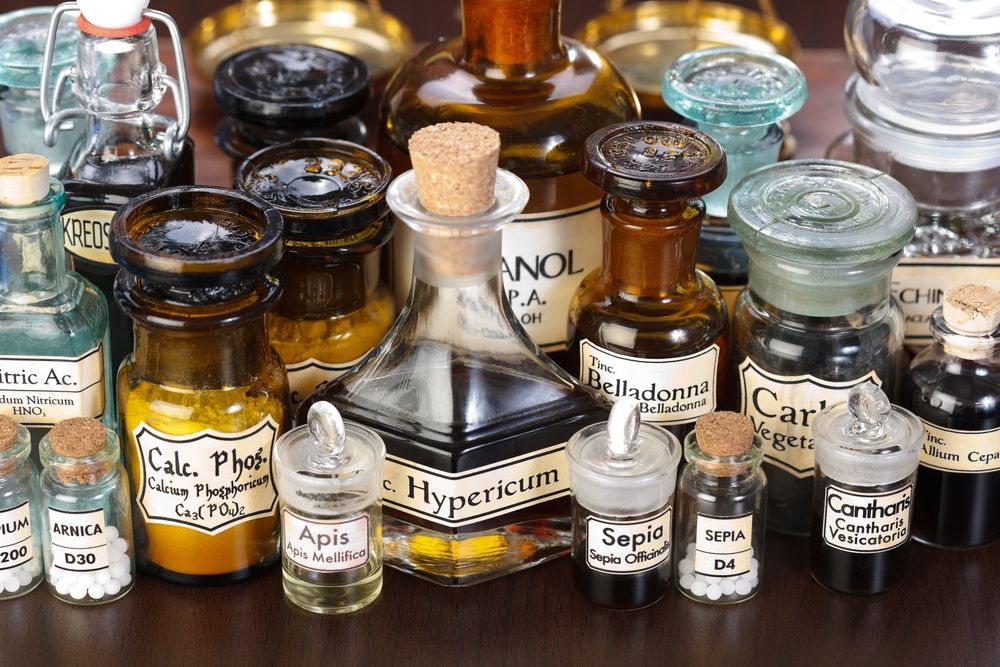
Homeopathy is an alternative medicine which was established in the 18th century. It has become a matter of debate in recent times. Despite this, patients still find solace in it while scientists are concerned about its effectiveness and basic theories.
What Are The Basic Principles of Homeopathy?
The basic principles of homeopathy include “like cures like,” using highly diluted remedies, individualizing treatment, and stimulating the body’s natural healing processes.
To understand why it attracts such criticisms, one has to have an understanding of homeopathy itself.
Law of Similars in homeopathic medicine is that anything that can create reactions and symptoms in healthy humans can be used to treat those affected by diseases.
Water or alcohol is used to dilute homeopathic remedies until there is no remaining trace amount of the original substance. In general, homeopaths administer their treatments based on overall symptoms rather than targeting particular diseases or conditions.
What Are The Scientific Criticisms of Homeopathy?
Scientific criticisms of homeopathy include lack of empirical evidence, reliance on placebo effects, implausibility of dilution principles, and inconsistent results in clinical studies.
One notable challenge to homeopathy comes from the fact that it operates against all known scientific principles. It’s often true that most dilutions used for homeopathic remedies do not have any detectable quantity of medicinal particles inside them. Critics claim these preparations can only exist as placebos since they lack enough molecules.
In pharmacology, it is commonly held that drug effect is related to its dose. According to homeopathic principles higher dilutions result in stronger potencies (‘similia similibus curantur’). Most medical experts believe that the homeopathic principles go against science.
Systematic reviews and meta-analyses of clinical trials have repeatedly failed to establish the effectiveness of homeopathic medicines over placebo for any medical condition.
What Are The Ethical and Practical Concerns?
Ethical and practical concerns in homeopathy include misleading efficacy claims, potential delays in conventional treatment, lack of regulation, and reliance on placebo effects over evidence-based care.
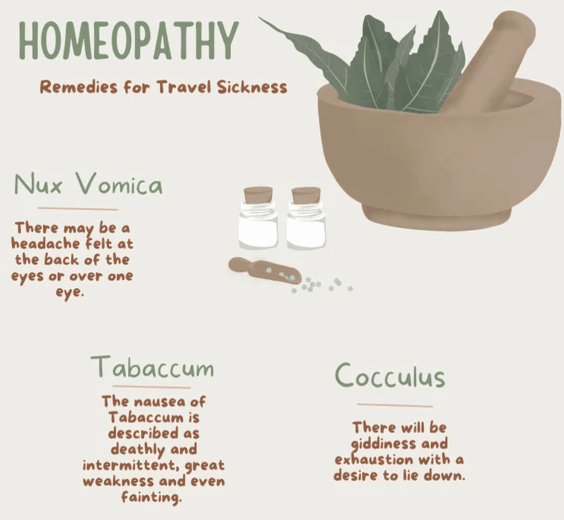
Experts argue that a lack of trust in conventional medicine may induce patients to delay appropriate treatment, which may aggravate their condition further. The issue becomes more pertinent with severe or life-threatening diseases where early treatment can make all the difference.
In certain countries, such treatments are part of national health services or covered by private insurance plans. This diverts limited healthcare resources away from evidence-based treatments and towards possibly less effective alternatives.
Some people see advocacy for homeopathy as a factor contributing to scientific illiteracy among individuals. By upholding principles that go against basic scientific beliefs, homeopathy may undermine confidence in evidence-based medicine as well as science itself.
What Are The Regulatory Issues In Homeopathy?
Regulatory issues in homeopathy include inconsistent standards, lack of rigorous efficacy testing, varying legal status globally, and concerns about consumer protection and misleading claims.
Most of these homeopathic products are often advertised using grounds that lack scientific evidence.
Different companies might produce homeopathic preparations differently. Critics posit that poor standardization makes it hard to ensure consistency in the quality and safety of these products.
Supporters of homeopathy commonly cite positive experiences by patients as proof of its effectiveness. However, skeptics attribute this to the placebo effect, the natural power of healing, together with empathetic care, which is usually offered by homeopathic practitioners.
While acknowledging that the placebo impact is a genuine phenomenon that may be beneficial, critics contend that prescribing placebos without disclosing such information to patients is unethical.
What defines homeopathic?
Homeopathy is defined as the use of highly diluted substances to treat symptoms based on the principle of “like cures like,” aiming to stimulate natural healing.
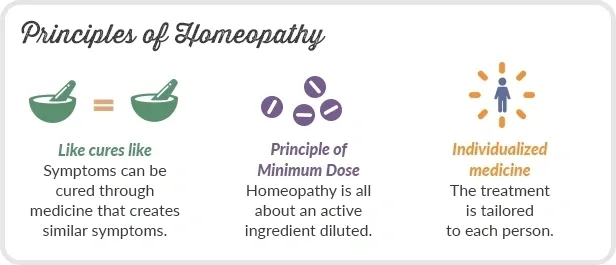
Homeopathy, an alternative medical system, is a system that follows the concept of “similia similibus curentur” whereby substances that cause symptoms in healthy people are used in extremely diluted form to treat similar symptoms in sick people. It also involves use of minute quantities of highly diluted substances which are said to spur the body into self-healing process.
Is homeopathy good or bad for you?
Homeopathy’s effectiveness is debated; some find it helpful, but scientific support is limited. It can be safe if used responsibly, complementing conventional care.
The efficacy of homeopathy is debated. Some users report positive results, often attributed to the placebo effect. Nonetheless, scientific studies have generally found no significant benefits beyond placebo. When used along with other treatments it is considered safe but relying only on it for serious conditions can be dangerous.
Is Homeo banned in Germany?
Homeopathy is not banned in Germany; it remains legal and widely practiced, though its effectiveness and coverage by public health insurance are increasingly debated.
Germany did not ban the practice of homeopathy. Instead, it has a great tradition related to this form and thus, it gets formal recognition and regulation. A few health insurance plans even cover some German pharmacies who stock different homeopathic remedies. Nevertheless, its effectiveness still remains under evaluation and criticism.
What is the most controversial part of the homeopathic method?
The most controversial part of the homeopathic method is the use of highly diluted substances, which critics argue lack scientific evidence and rely on placebo effects.
This dilution stage renders homeopathic remedies a subject of extreme controversy as it usually goes so far that there is no original substance’s molecule remaining inside their composition at all.
Detractors argue that this contradicts basic tenets of chemistry and pharmacology known in science thereby making it questionable how such dilutions could have any therapeutic impact apart from the placebo effect.
What does 30C mean in homeopathy?
In homeopathy, 30C means the substance has been diluted 1 part in 100, repeated 30 times, resulting in an extremely diluted remedy.
In homeopathy, 30C refers to dilution where the mother tincture has been diluted by one part a hundred thirty times. In this case, it implies that one part of the substance would be diluted in 10^60 parts of water or alcohol. This practice is controversial and typically involves extreme dilutions.
Do doctors believe in homeopathy?
Belief in homeopathy varies among doctors; some are skeptical due to lack of scientific evidence, while others may support its use for certain conditions or patient preferences.
Doctors have differing beliefs when it comes to homeopathy. In some regions where it’s more culturally acceptable, some medical practitioners incorporate them into their procedures. However, the majority of mainstream medicine and health organizations regard it with skepticism since there is no proven scientific evidence.
Conclusion
The main criticisms against homeopathy are its lack of scientific plausibility, limited evidence for efficacy, placebo effects, and concerns about public health. Even though some patients might claim they are benefiting from such treatments, science overall remains suspicious about such assertions. As healthcare systems and consumers continue to debate on this matter, they should carefully weigh all evidence surrounding these practices.
References
Homeopathy
Homeopathy, an alternative type of medicine that is more than two centuries old, has it that “similia similibus curantur,” serves as a stimulant to healing.

Homeopathy, the last system of alternative medicine founded in the late 18th century by Samuel Hahnemann, is based on the idea of the “like cures like” principle. This means that a remedy that causes symptoms in a healthy person can be used to cure similar symptoms in a patient when it is administered in a highly diluted form. Nonetheless, despite its long existence and wide acceptance, homeopathy continues to court controversy, particularly around issues of its safety and efficacy.
What are the common side effects of homeopathy?
Homeopathy generally has few reported side effects due to its use of highly diluted substances. However, some individuals may experience mild symptoms like nausea or dizziness. Severe reactions are rare but can occur in sensitive individuals. Always consult a healthcare provider if unusual symptoms arise.
While homeopathic remedies are designed to be safe due to their extreme dilution, mild, temporary symptoms might be reported by some users. Normally they will not be too serious and may only manifest as mild headaches or stomach issues. Still, it is imperative to monitor any such symptoms and report them to a healthcare professional in case of persistence or one experiences severe reactions. Professional guidance allows management of the possible side effects.
Is homeopathy safe for children?
Homeopathy is considered generally safe for children, as remedies are highly diluted and typically have fewer side effects. However, it is essential to consult a pediatrician before starting any homeopathic treatment, especially for serious or persistent health issues.
Since homeopathic medicines are so diluted, they are usually very well tolerated in children, and one finds them frequently used for a wide range of minor ailments. That general safety notwithstanding, consulting a pediatrician to verify if the remedy chosen fits the child’s particular need is of prime importance. Only then will a pediatrician be able to advise on safe usage and ensure that homeopathy complements, not contradict other treatments or interventions.
Can homeopathy interact with other medications?
Homeopathic remedies are usually safe to use with other medications as they are highly diluted and unlikely to cause interactions. However, it is important to inform your healthcare provider about all treatments you are using to avoid potential interactions and ensure overall safety.
It generally won’t have an interaction with conventional medications because of its extreme dilution, but the health care provider should be informed about all prescribed medications and supplements being taken. This way, they may individually evaluate possible interactions and advise how to use homeopathy in combination with other therapies to make all therapies as safe and effective as possible.

Are there any risks associated with using homeopathy?
Risks associated with homeopathy are generally minimal due to the high dilution of substances used. However, improper use or relying solely on homeopathy for serious conditions can pose risks. Consulting with a healthcare professional is crucial for ensuring appropriate treatment and minimizing risks.
Inherent to the extreme dilution involved in homeopathy is the minimal risks associated with it; hence, serious side effects are highly unlikely. Still, this could be a problem if homeopathy isn’t used correctly, resulting in incorrect dosages and not seeking conventional treatment for serious medical conditions. It’s always important to talk to your healthcare professional about using homeopathy to ensure that it’s being used correctly and that it is complementary—not an alternative—to medical treatment when you need it.
Can homeopathy cause allergic reactions?
Allergic reactions to homeopathic remedies are rare but possible. Most remedies are highly diluted, reducing the likelihood of an allergic response. If you experience symptoms like rash or itching, discontinue use and consult a healthcare provider for further evaluation.
Even though homeopathic remedies are immensely diluted, it is not possible to discount the occurrence of some allergic reactions. These include rash, itching, or other allergic reactions. A number of these symptoms compel one to stop using the remedy and advise a healthcare professional. The professional will evaluate if the reaction exhibited by the person is a result of the homeopathic remedy or another factor.

What should you do if you experience side effects from homeopathy?
If you experience side effects from homeopathy, discontinue the remedy and consult a healthcare provider. While side effects are uncommon, any adverse symptoms should be evaluated to determine the cause and appropriate action.
If one experiences side effects during the treatment using homeopathic remedies, he should immediately withdraw from the remedy and seek a health professional. Even though side effects are a rare case, he should report it immediately. The health professional will thus be in a position to help assess whether the symptoms are resulting from the remedy or any other factors, and advise on how to manage or improve the issue at hand.
Is it safe to use homeopathy during pregnancy?
Homeopathy is generally considered safe during pregnancy due to the high dilution of substances. However, it is essential to consult with a healthcare provider before using any homeopathic remedies during pregnancy to ensure they are appropriate and safe for both mother and baby.
The fact that homeopathic remedies are considered safe to be taken during pregnancy is due to their extreme dilution, which makes side effects unlikely. Nevertheless, this being a sensitive period, it is important to seek advice from a health professional before starting treatment. They can cross-check the appropriateness of the remedies against potential interference with the health of either the mother or the baby.
Are there any known long-term side effects of homeopathy?
Long-term side effects of homeopathy are uncommon due to the extreme dilution of remedies. Most individuals do not experience adverse effects with prolonged use. However, monitoring for any changes and consulting a healthcare provider for regular check-ups is advised.
Given a homeopathic substance’s extreme degree of dilution, long-term side effects are rather rare. Most people can take homeopathic remedies for quite a long time with little or no serious side effects. Nevertheless, one should always monitor health changes and consult the doctor frequently to ensure the remedy remains apt and effective without causing any unexpected complications.
Conclusion
Summarily, therefore, although severe side effects are less likely due to extensive dilutions utilized in homeopathy, there exists a probability of allergies towards inert substances effectively that are in them. Because there has been no conclusive scientific proof concerning how well homeopathy works or what its mechanism of operation really is, even though it carries relatively little risk in general terms, its application must be approached circumspectly.
References
Homeopathy
Homeopathy, an alternative type of medicine that is more than two centuries old, has it that “similia similibus curantur,” serves as a stimulant to healing.
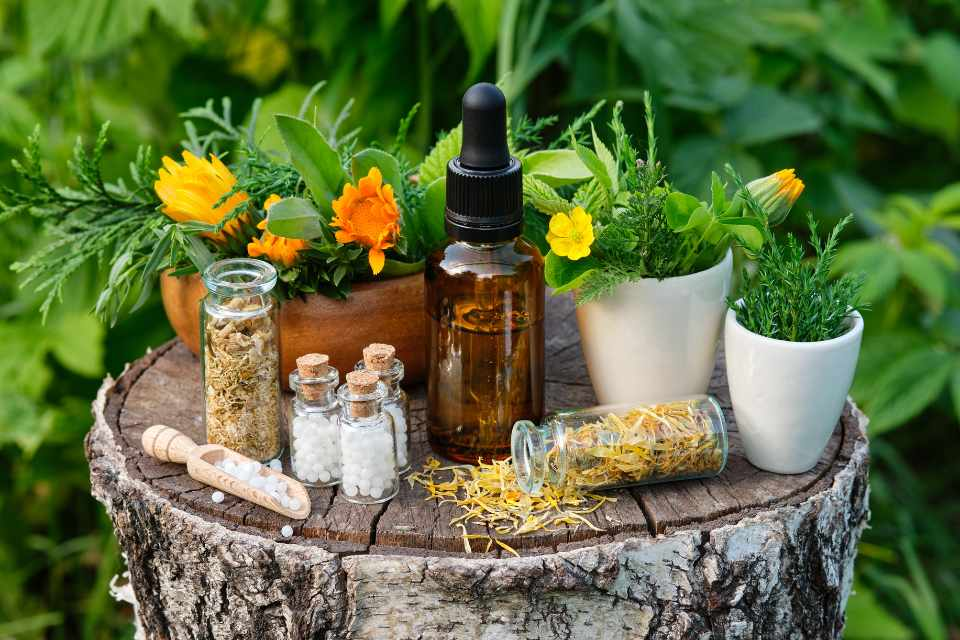
Can homeopathy cure mental illness? Many individuals pose this question while exploring non-traditional ways of treating psychiatric disorders. About 200 years ago, a medical system named homeopathy was invented with the aim of activating natural healing forces in human beings using very diluted substances. But how does it work for mental health? This post examines the possible advantages and disadvantages of dealing with such issues.
Can homeopathy help with anxiety disorders?
Homeopathy can help manage anxiety disorders as it has been believed to alleviate symptoms of anxiety by using remedies like Aconitum and Arsenicum Album that get inclined towards the emotional and physical symptoms of the patient.
However, scientific evidence supporting homeopathy’s effectiveness in treating anxiety is limited, and often the therapy is used as a complementing tool. In this individualized treatment, people going for homeopathy for anxiety find a sense of well-being and calmness.
While prescribing the remedy, homeopaths take into consideration the mental, emotional, and physical symptoms of the person. However, patients must consult healthcare providers to ensure an integrated approach to anxiety management.
How does homeopathy help with depression?
Homeopathy helps manage depression based on an individual’s emotional condition, with treatment methods including Natrum Muriaticum and Ignatia. These medications are considered to assist in a hidden imbalance of a patient’s emotional state.
However, the scientific evidence backing homeopathic treatment for depression is very weak; hence holistic treatment is necessary. Homeopathic practitioners underline that every patient’s symptoms should be carefully studied, whether their problem shows up in feelings of being depressed, lacking motivation, or being irritable.
The aim will be the restoration of emotional balance and contribution to general mental health. Homeopathy is often accompanied by other therapies for better treatment results, and the patient will always be advised to be open with their health providers.
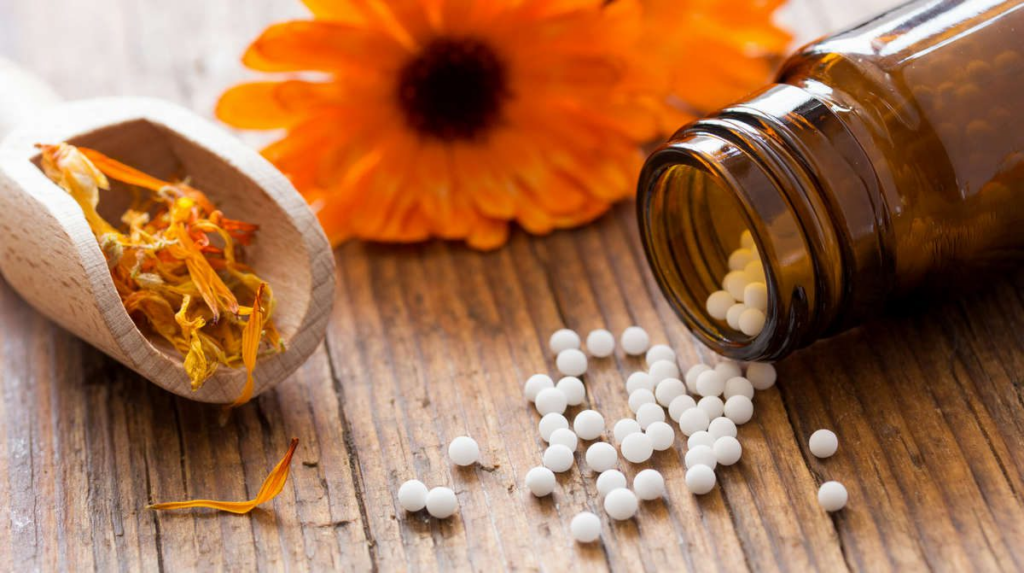
What homeopathic remedies are used for stress management?
Common homeopathic remedies for stress management include Kali Phosphoricum, known for its calming effects, and Argentum Nitricum, which targets anticipatory anxiety. These remedies are selected based on individual symptoms, with a focus on promoting relaxation and emotional stability. Their use should complement professional mental health care.
Homeopathy in stress management would call for an overall assessment of the patient’s stressors, emotional responses, and physical symptoms; treatment would be given accordingly to reduce stress and increase resilience. Many homeopathic practitioners recommend some changes in lifestyle along with the remedies for overall stress reduction.
Can homeopathy help in sleep disorders?
Homeopathy may assist with sleep disorders by using remedies like Coffea Cruda, which is believed to calm an overactive mind, and Nux Vomica, which addresses stress-related insomnia. Homeopathy focuses on individual sleep patterns and emotional factors, providing personalized solutions that complement standard sleep therapies.
Practitioners assess sleep quality, stress levels, and lifestyle factors in the patient to apply the appropriate remedy. Homeopathy promotes sleep by withdrawing the fundamental causative factors for sleep disturbances. Also, sleep hygiene practices will be advocated, and regular follow-up with healthcare providers to get optimal results.
Is homeopathy effective for treating ADHD symptoms?
Homeopathy is generally effective in treating ADHD symptoms with remedies like Hyoscyamus and Tarentula, which target hyperactivity and concentration issues. However, scientific support for homeopathy in ADHD treatment is limited, and it is often utilized as a complementary approach alongside conventional therapies for comprehensive care.
Homeopathic treatment of a child profiles their pattern of behavior that encompasses impulsivity and poor concentration. Remedies are given that will enhance concentration and generally improve behavior. Such collaboration helps in utilizing homeopathy as an adjunct in the management of ADHD symptoms along with other evidence-based interventions.

What role does homeopathy play in managing OCD?
Homeopathy is believed to assist in managing OCD by addressing underlying emotional imbalances with remedies such as Arsenicum Album and Syphilinum. Treatment is personalized, focusing on specific obsessions and compulsions, but should be considered complementary to evidence-based OCD therapies like cognitive-behavioral therapy.
Practitioners assess the patient’s OCD symptoms, such as persistent thoughts and repetitive behaviors in choosing the proper remedies. The aim of homeopathy is to decrease anxiety and improve mental flexibility. Integration of homeopathic remedies with traditional treatments are encouraged for the patients to have a holistic approach to the management of OCD and improve the outcome of the treatment.
Are there homeopathic solutions for PTSD?
Homeopathy is thought to help with PTSD symptoms by using remedies like Aconitum Napellus and Arnica, which address fear and trauma. Treatment focuses on individual emotional responses and past experiences, serving as a complementary approach to standard PTSD therapies for a more holistic recovery process.
Homeopathic professionals take a detailed history of the patient’s traumas and their feelings to select remedies that will assist people on their paths to healing. It may help reduce levels of anxiety, flashbacks, and emotional pain. Coordination with mental health professionals can ensure a comprehensive treatment plan that includes homeopathy along with therapies such as trauma-focused cognitive-behavioral treatment.
The Key Takeaway
Homeopathy provides an all-round approach that works well with conventional treatments while enhancing general healthiness. It is individual-centric and non-aggressive thus becoming a favorable choice for people seeking other options. To obtain excellent results from using homeopathy for mental health, ensure that consultation is made with qualified practitioners who will provide appropriate care.
Homeopathy
Homeopathy, an alternative type of medicine that is more than two centuries old, has it that “similia similibus curantur,” serves as a stimulant to healing.

Naturopathy and homeopathy are two terms that are often confused or used interchangeably in the field of alternative medicine. Nevertheless, they have different philosophies, methodologies and practices as approaches to healthcare.
Both naturopathy and homeopathy lie under complementary and alternative medicine (CAM). Although they have the same goal of promoting healing and wellness naturally, their ways are strikingly dissimilar.
What Are The Origins and Historical Context?
Naturopathy originated in the late 19th century focusing on natural healing, while homeopathy was developed by Samuel Hahnemann in the late 18th century using diluted substances.
Also known as naturopathic medicine, naturopathy was derived from Europe’s Nature Cure movement during the 19th century. The term “naturopathy” itself was introduced by John Scheel in 1895 but it was popularized by Benedict Lust who is often referred to as a father of American naturopathy.
On the other hand, homeopathy was founded by late 18th century German doctor Samuel Hahnemann. Unlike conventional medicines which suppress symptoms through chemicals homeopathic medicines stimulate natural processes within our bodies helping them fight diseases more effectively with no side effects .
What Are Their Basic Principles?
Naturopathy’s basic principles include treating the whole person and using natural remedies, while homeopathy’s principle is “like cures like” with highly diluted substances.
Naturopathy is guided by a number of key principles. Naturopaths believe in the inherent ability of the body to get well. Instead of treating symptoms, naturopaths will look for and treat the cause(s) of ill health.
Treatments should be non-invasive and have minimal side effects. Physical, mental, emotional, and environmental components are all considered in naturopathic treatment.
Homeopathy consists of three fundamental principles. A substance that causes symptoms in a healthy person can be used to treat similar symptoms in an unwell person.
Sometimes referred to as infinitesimal dosing. The remedies used are so diluted that there may be no original molecules left;. Homeopaths generally prescribe one remedy at a time that suits the patient’s entire condition.
What Are The Differences in Methods And Treatment?
Naturopathy uses natural therapies and lifestyle changes, while homeopathy uses highly diluted substances based on “like cures like.” Naturopathy is broader, homeopathy is more specific.
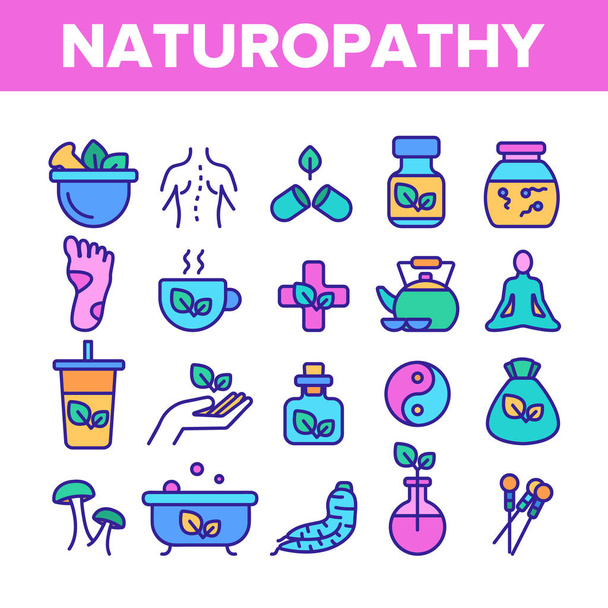
Naturopathy treatment methods include nutritional advice, herbal medicine, hydrotherapy (water therapy), physical therapies (e.g., massage, chiropractic ), health counseling, acupuncture and mind-body techniques such as yoga or meditation, etc.
Additionally, naturopaths can employ conventional diagnostic tools such as laboratory tests or physical examinations. They incorporate modern scientific knowledge into their traditional healing wisdom.
The homeopathic remedy consists the use of weakly diluted substances like sugar globules (pellets), aqueous solutions and creams or ointments for external application
Homeopaths can select a cure based on the physical symptoms and mental state of a patient. The selected cure should reflect the overall symptoms of the patient.
How Does The Approach to Diagnosis and Treatment Differ?
Naturopathy diagnoses through a holistic assessment and uses various natural treatments, while homeopathy diagnoses are based on symptom similarity and use highly diluted remedies tailored to individual symptoms.
Naturopathy includes elements such as physical signs, feeding habits and nourishment, lifestyle habits, mental and emotional status, susceptibility to environmental influence, and genetic susceptibility towards illness.
Treatment plans are tailor-made, drawing from multiple therapeutic modalities. Naturopathic practitioners usually work with conventional medical doctors.
This involves an extended interview known as “case-taking,” through which homeopaths try to establish presenting complaints, past illnesses, emotional sphere, living habits, and individual peculiarities.
Based on this information, a single remedy called simillimum is chosen by a homeopath In most cases, it is given in highly diluted forms since high dilution can bring strong positive effects.
What Is The Difference In Regulation and Training?
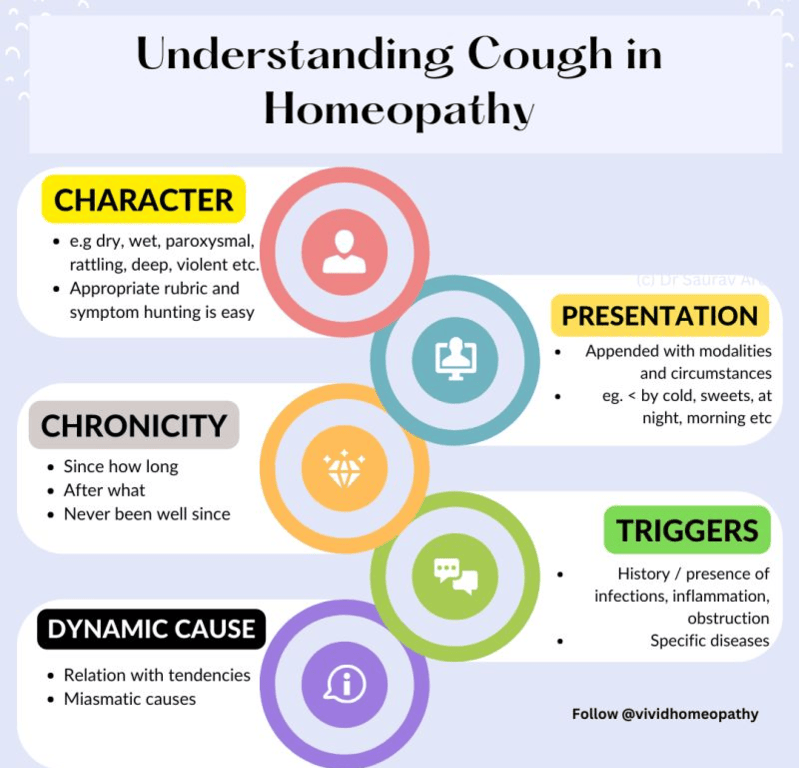
Naturopathy often requires formal education and licensing, with standardized training. Homeopathy varies widely, with less consistent regulation and training requirements across different regions.
In many countries across the world, naturopathy is an organized profession. Naturopathic doctors (NDs) are usually highly trained in graduate program takes four years to complete, bachelor’s degree, clinical training and licensing exams.
The authority of naturopaths varies by jurisdiction, with some allowing them to prescribe certain medications and perform minor surgeries.
There are different regulations for homeopathy across the globe. In other countries it is a part of their national health care while others do not regulate it much at all. It may vary from short courses to university degrees depending on the country and specific program offered.
How much does it cost to see a homeopath?
The cost to see a homeopath typically ranges from $50 to $200 per session, depending on location, practitioner experience, and the length of the consultation.
On average, these visits can range from $50 to $300 per session, depending on where you live and the expertise level of your chosen practitioner. Their prices for initial consultations might be slightly higher due to longer appointment times.
What Are The Two Types Of Homeopathy?
The two types of homeopathy are classical homeopathy, which uses a single remedy based on symptoms, and complex homeopathy, which combines multiple remedies for treatment.
Classical homeopathy which utilizes one remedy after assessing all individual’s symptoms as a whole. Then there is complex homeopathy where several drugs are put together just to treat specific complaints.
Why Do Allopathic Doctors Reject Naturopathy?
Allopathic doctors may reject naturopathy due to concerns about lack of scientific evidence, efficacy, and safety, as well as differences in treatment philosophies and methodologies.
Allopathic doctors reject naturopathy because there is insufficient scientific proof establishing its effectiveness; they embrace divergent medical philosophies or are scared about possible dangers or conflicts with conventional treatments.
Is a homeopathic doctor the same as a holistic?
The homeopathic doctor is different from the holistic doctor, who considers the whole person and may employ homeopathy, among other methods.
Should I see a naturopath or a homeopath?
Choose a naturopath for a broad approach using various natural treatments and lifestyle advice, or a homeopath for specific, individualized remedies based on symptom similarity.
Whether to consult a naturopath or homeopath depends on your health needs. Naturopathy uses several natural remedies like dietary changes and lifestyle, while homeopathy concentrates solely on homeopathic remedies.
Do holistic doctors believe in medicine?
Yes, holistic doctors believe in medicine, integrating conventional treatments with alternative approaches to address the whole person and provide comprehensive care.
Yes, holistic doctors do believe in medicine although they focus more on integrative and natural approaches, which considers the entire being by merging conventional treatments together with alternative therapies to sustain general wellness.
Why are holistic doctors so expensive?
Holistic doctors may be expensive due to extended consultation times, personalized care, and the integration of multiple treatment modalities, which often aren’t covered by insurance.
Holistic practitioners have higher prices than other medical professionals due to long consultation times, individually tailored patient plans, lack of insurance for alternative therapies leading to out-of-pocket expenses. They also use specialized diagnostic and treatment options.
Conclusion
Although both belong under alternative medicine, it must be understood that naturopathy and homeopathy are dissimilar practices with diverse philosophies and methodologies. Having an all-natural view towards health includes various kinds of normal healing techniques in its practice while using diluted substances, which defines homeopathy.
References
Homeopathy
Homeopathy, an alternative type of medicine that is more than two centuries old, has it that “similia similibus curantur,” serves as a stimulant to healing.
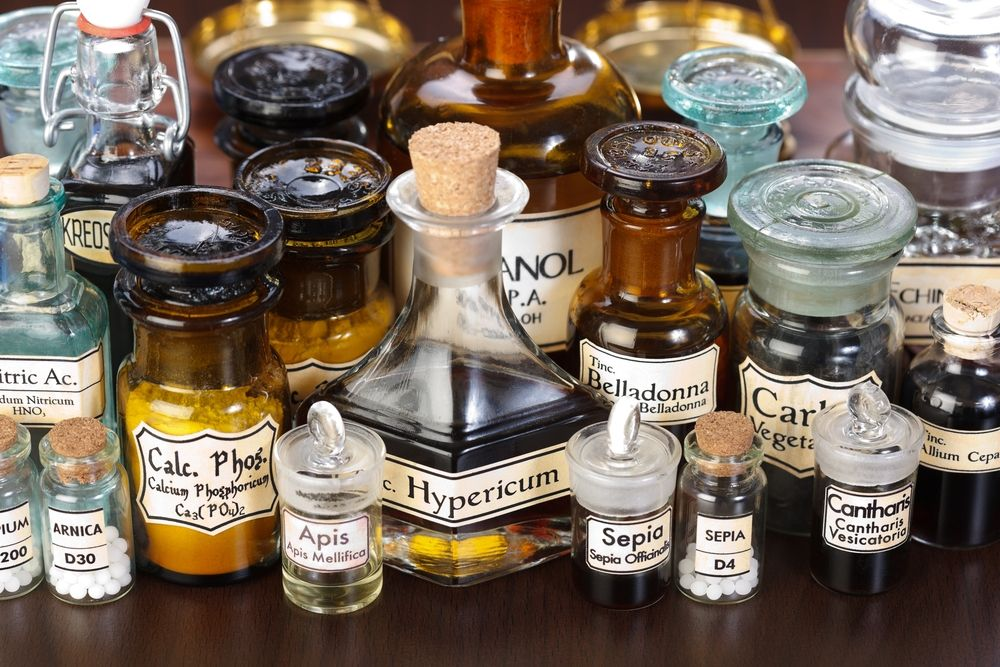
Homeopathy is a great point of contention in the field of alternative medicine, with its unique principles and historical roots. Here, we will delve into the position of homeopathy as regards FDA approval, scientific evidence for or against it, practitioners’ skills and insurance coverage, and safety precautions to take while using homeopathic remedies. This blog also evaluates various benefits that come with homeopathy with an aim to giving you clear and informed answers about how this treatment works.
How does the FDA regulate homeopathic remedies?
The FDA regulates homeopathic remedies under the Federal Food, Drug, and Cosmetic Act. They must meet specific safety standards but do not undergo the same rigorous testing as conventional drugs. The FDA’s guidelines ensure basic safety but do not guarantee effectiveness.
Homeopathic products are regulated to ensure they are manufactured in a uniform fashion, primarily from the standpoints of safety and proper labeling. They must be manufactured in accordance with the Homeopathic Pharmacopoeia of the United States, which allows for their standard formulation. However, unlike conventional drugs, homeopathic products are not required to be proven effective through rigorous clinical trials. It simply means that the FDA monitors the drugs for safety but does not validate their effectiveness through rigorous scientific testing.
What are the FDA’s guidelines for homeopathic products?
The FDA’s guidelines for homeopathic products require them to adhere to the Homeopathic Pharmacopoeia of the United States. They must be manufactured according to these standards and labeled properly, but clinical testing requirements are less stringent than for conventional drugs.
These guidelines stipulate the way homeopathic remedies should be prepared, tested, and labeled to ensure their safety and uniformity. HPUS gives methods of preparation, such as sources of substances and dilution levels. Within such a framework, all homeopathic products would have a certain standard of manufacture, while it does not presuppose rigorous clinical testing as conventional pharmaceuticals do. From here, this regulatory approach will seek a balance between demanding safe oversight and being in tandem with traditional practice in the field of homeopathy.
Are homeopathic remedies approved by the FDA?
Homeopathic remedies are not “approved” by the FDA in the traditional sense. Instead, they are regulated for safety and must meet certain criteria. They are included in the Homeopathic Pharmacopoeia, which provides standards for their preparation and labeling.
Unlike conventional drugs, which go through a rigorous approval process involving clinical trials, homeopathic remedies do not need formal approval before they hit the market. They are instead regulated according to compliance with the HPUS and general requirements of safety.
Essentially, this means that while they have to meet certain specified requirements of safety and be labeled correctly, they do not get FDA approval for effectiveness. What should be on consumers’ radars is that the safety of these products is checked; however, efficacy is not guaranteed.
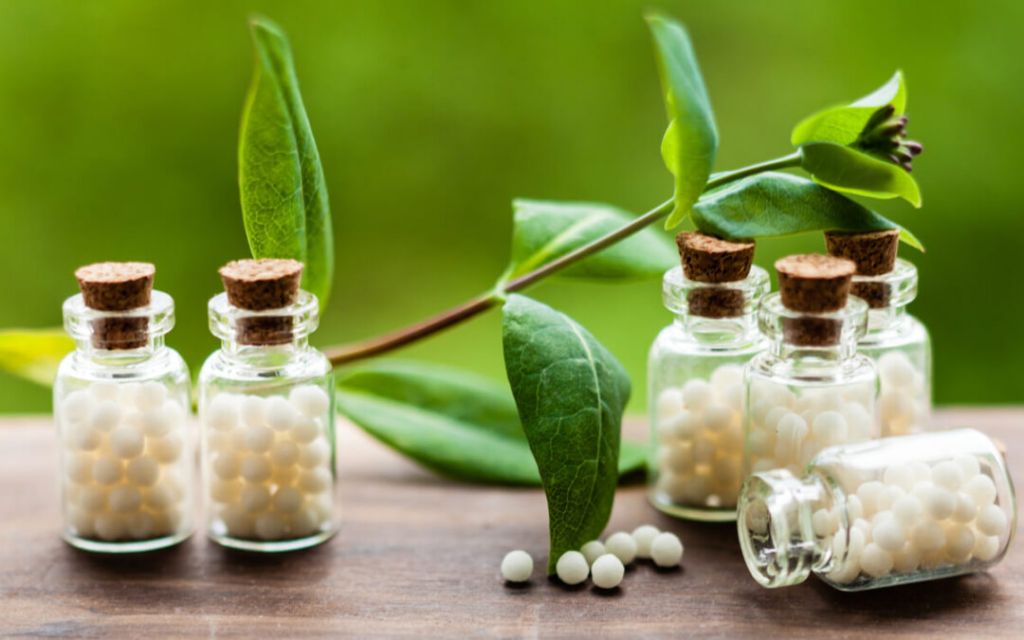
What are the limitations of FDA oversight on homeopathy?
The FDA’s oversight of homeopathy is limited compared to conventional drugs. Homeopathic remedies are not subject to the same rigorous clinical trials and approval processes. The focus is on safety and labeling rather than proving efficacy through extensive research.
The FDA regulatory framework on homeopathy emphasizes basic safety and proper labeling rather than detailed efficacy testing. This is interpreted to mean that while homeopathic products need to meet some manufacturing specifications and not obviously harbor contamination, they won’t have to prove their clinical effectiveness through rigorous trials required of conventional medications.
The limited enforcement discretion in this regard also means that homeopathic drugs are not subjected to rigorous testing, which probably explains their variability in performance. In the context of this class, homeopathic remedies are drugs within the meaning of the Federal Food,
How does the FDA classify homeopathic remedies?
The FDA classifies homeopathic remedies as drugs but with less stringent requirements than conventional pharmaceuticals. They must follow the Homeopathic Pharmacopoeia but do not require FDA approval before marketing.
Act and Cosmetic Act. However, they are regulated under a different set of laws from regular medicines. They need to comply with the HPUS that has provisions as to their formulation and labeling but do not require any pre-market approval by the FDA. This means homeopathic remedies can be marketed without receiving formal approval like regular drugs go through, they only have to meet the requirements regarding their safety and quality.
What is the Homeopathic Pharmacopoeia of the United States (HPUS)?
The Homeopathic Pharmacopoeia of the United States (HPUS) is a compendium that sets standards for homeopathic remedies, including their preparation and labeling. It is recognized by the FDA as a reference for ensuring consistency and safety in homeopathic products.
The HPUS gives the manufacturer, cum detailed framework for the manufacture and labeling of homeopathic remedies on how the remedies shall be prepared, tested, and documented. The compendium, in that case, acts as a standard reference to ensure homeopathic products meet the minimum safety and quality requirements.
It gives clarity in maintaining consistency among homeopathic products concerning acceptable practices and standards. The efficacy is, however, not addressed.
How does FDA regulation impact the safety of homeopathic remedies?
FDA regulation impacts safety by requiring homeopathic remedies to meet specific standards outlined in the HPUS. However, because these products are not subject to rigorous clinical trials, their effectiveness may vary.
The FDA ensures that homeopathic remedies are made to certain safety standards of their manufacture that decrease the potential for harmful contaminants and assure appropriate labeling. While this type of oversight does help to provide some basic level of safety, it does not stand under any rigorous testing for effectiveness.
This consequently means that even though homeopathic remedies are basically safe if made according to HPUS standards, their effectiveness in treating conditions varies greatly and is not guaranteed by the FDA.
Conclusion
To sum up, Homeopathy remains to be extensively employed but debatable practice. Researchers argue that despite having some benefits and being regulated by the FDA, homeopathy has been questioned scientifically over time thus leading to limited health cover provisions. In order to use it safely knowing its limits and talking with healthcare practitioners are important. Be informed to make appropriate choices for your health and that of your family.
